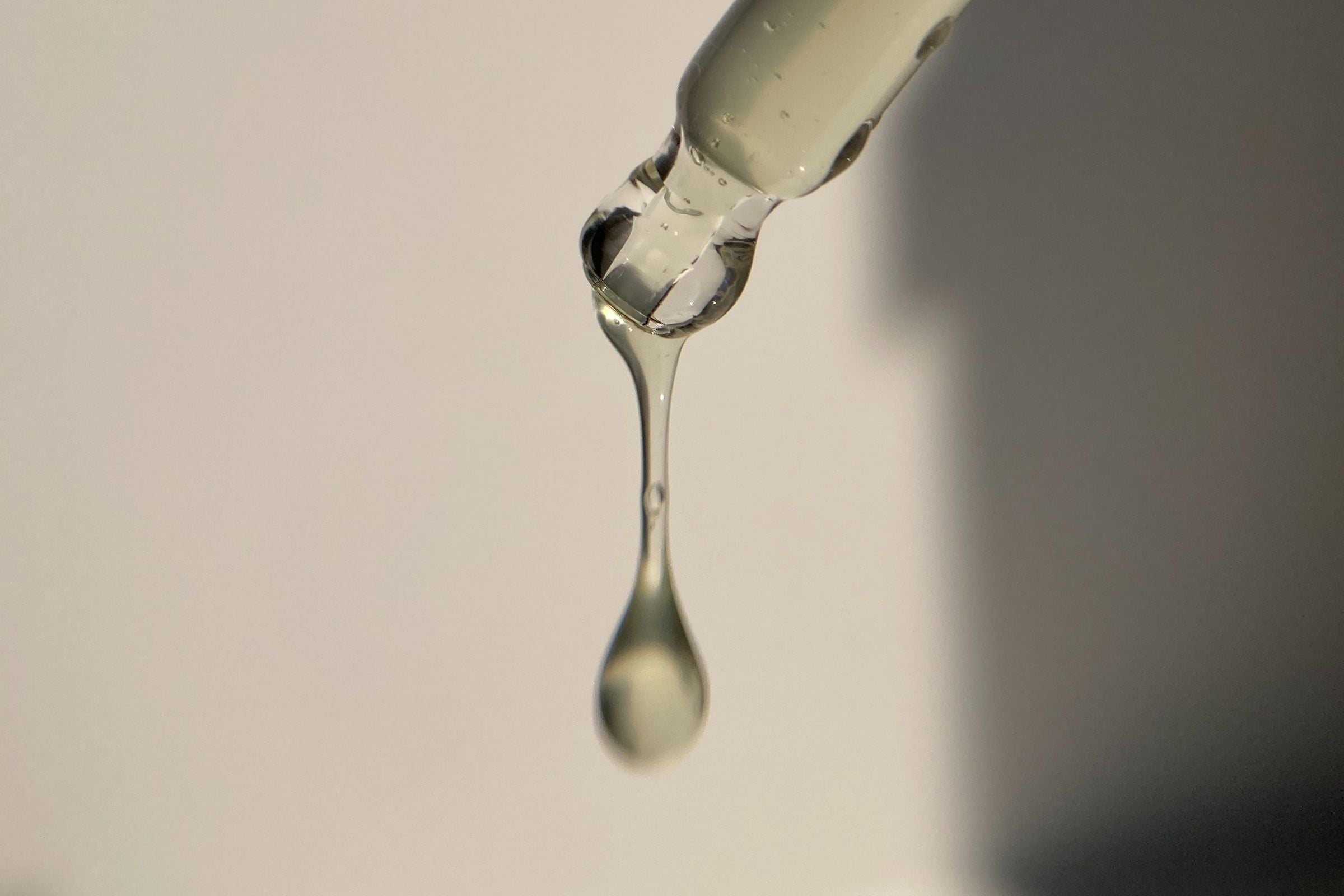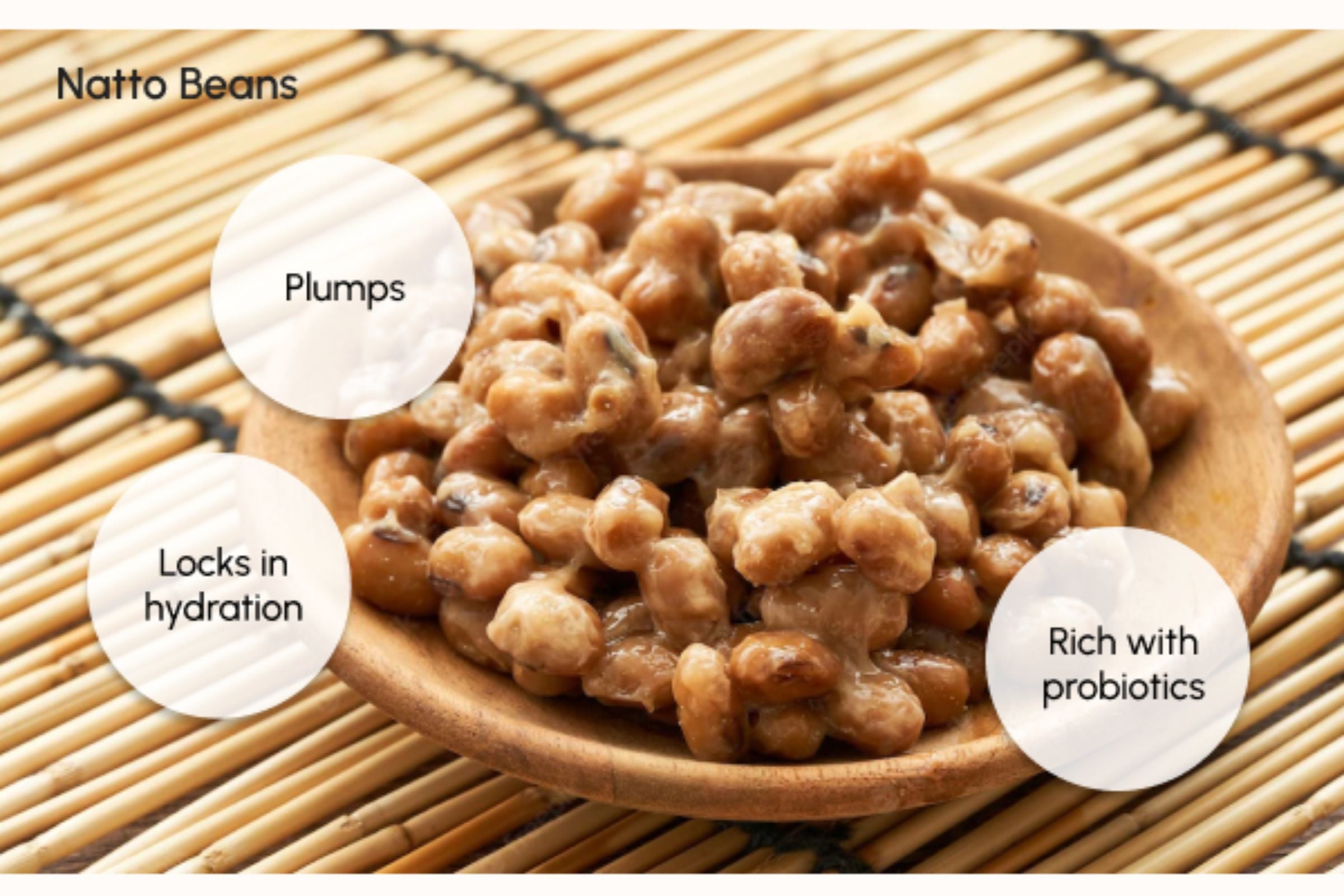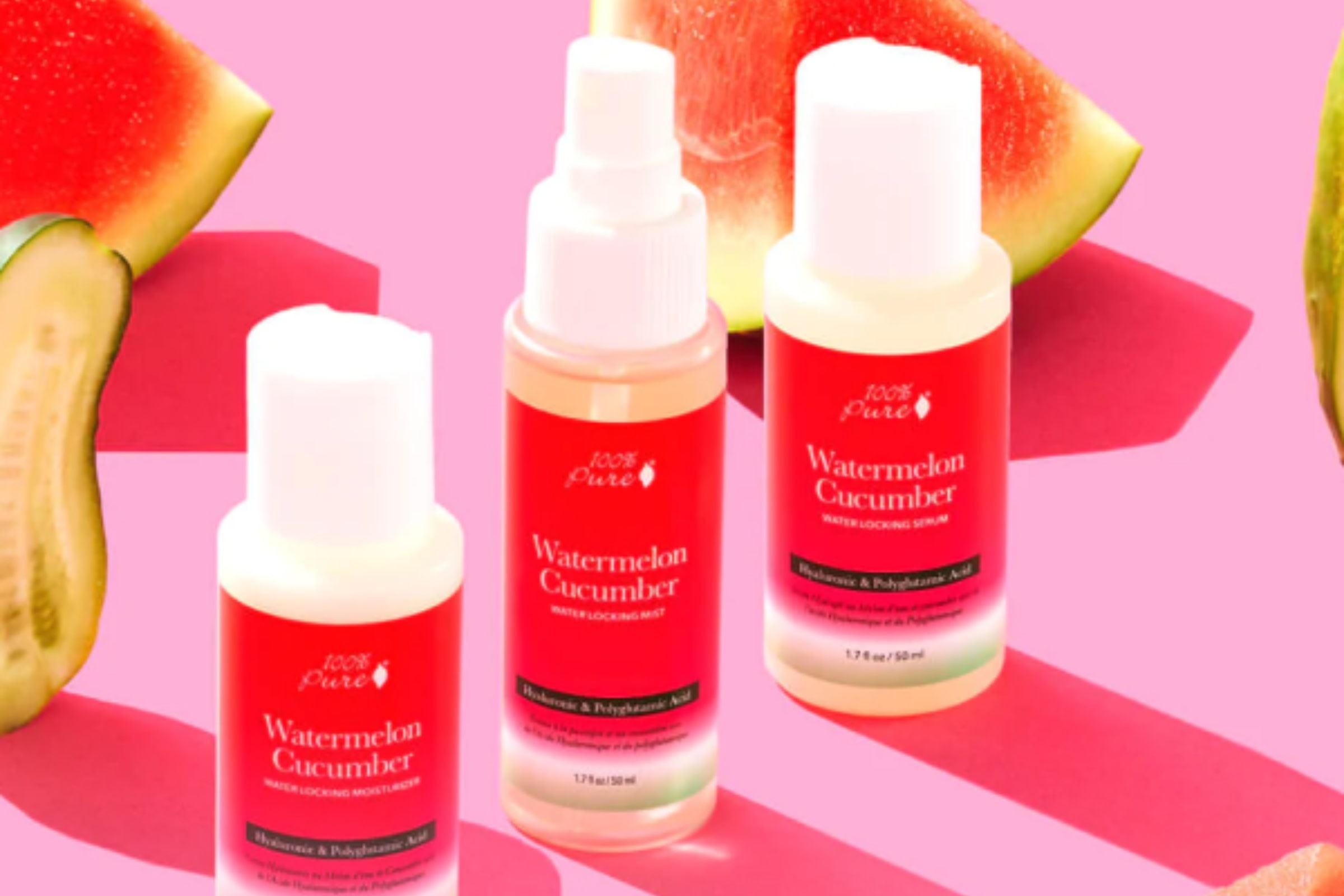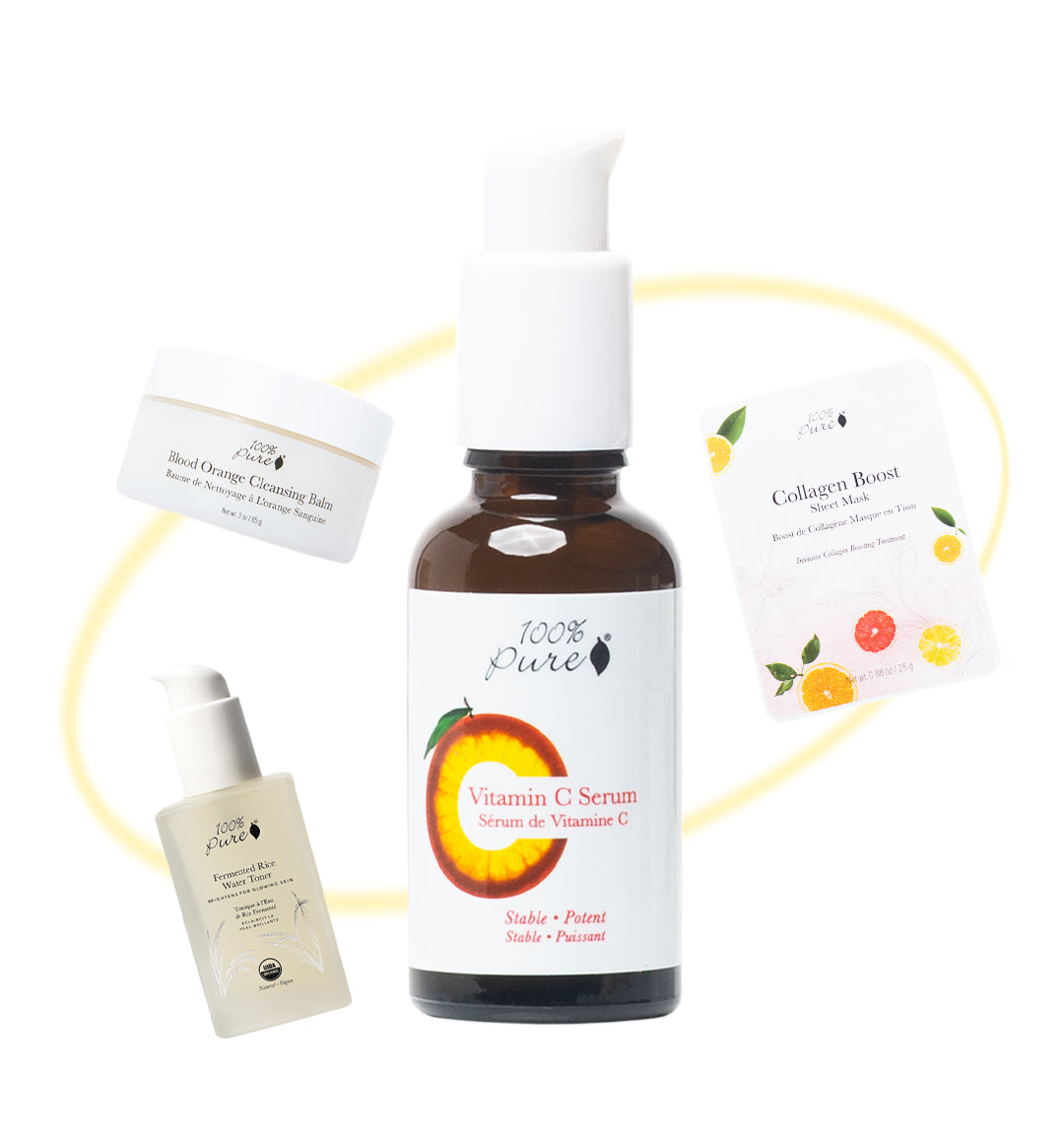
[ad_1]

In the ever-evolving landscape of skincare, the quest for the next groundbreaking ingredient is perpetual. Among the latest stars in this dynamic world is a powerful, yet under-the-radar component: polyglutamic acid (PGA). Emerging as a game-changer in skincare regimens, PGA is swiftly gaining popularity, thanks to its remarkable properties.
Polyglutamic acid, a potent hydrator, has been quietly revolutionizing skincare routines. It’s not just another fleeting trend; PGA is earning its place in the skincare hall of fame for its unique ability to lock in moisture and enhance skin texture. As we delve deeper into the world of PGA-infused skincare products, you’ll discover how this ingredient can transform your skincare routine, offering benefits that cater to a wide array of skin types and concerns.
Decoding Polyglutamic Acid: What Is It?
Polyglutamic Acid (PGA), a name gaining momentum in the skincare world, is not just another fleeting trend but a powerhouse ingredient with fascinating benefits. Structurally, PGA is a biopolymer, specifically a polypeptide, composed of multiple units of the amino acid glutamic acid. This compound is naturally produced by certain bacteria, most notably by those used in the fermentation process of soybeans to make Natto, a traditional Japanese dish. The discovery of PGA’s skin-beneficial properties was almost serendipitous, emerging from observations of the exceptionally smooth and youthful skin of workers handling Natto.
The science behind PGA’s effectiveness lies in its impressive molecular structure. Unlike other skincare ingredients, its high molecular weight allows it to form a dense, hydrating film on the skin’s surface. This film not only delivers immediate hydration but also effectively locks in moisture, providing prolonged skin hydration that is essential for a healthy and radiant complexion.
To fully appreciate the magic of PGA, it’s helpful to compare it with other well-known players in the skincare arena:
Hyaluronic Acid (HA): Perhaps the closest comparison to PGA is Hyaluronic Acid, renowned for its hydrating properties. Both PGA and HA are humectants, meaning they attract water. However, PGA has a larger molecular size, which can create a more effective moisture barrier on the skin. It’s also believed to hold more water than HA – up to five times its own weight, enhancing its ability to provide deep and lasting hydration.
Collagen and Elastin: Often highlighted for their role in maintaining skin elasticity and firmness, collagen and elastin are naturally occurring proteins in the skin. While PGA does not directly boost these proteins, its hydrating effect can help improve skin texture and reduce the appearance of fine lines, indirectly supporting the skin’s elasticity.
Vitamin C and E: These antioxidants are famed for their protective role against environmental damage and their contribution to skin brightness and even tone. While PGA doesn’t share these antioxidant properties, its intense hydration can complement the effects of vitamins C and E, promoting overall skin health and resilience.
Retinoids: Known for their powerful anti-aging benefits, retinoids accelerate cell turnover and stimulate collagen production. PGA differs as it focuses more on hydration and skin barrier enhancement. However, when used in conjunction, PGA can help mitigate some of the dryness and irritation often associated with retinoid use.
Why Polyglutamic Acid is Gaining Momentum
In the ever-evolving world of skincare, polyglutamic acid (PGA) has emerged as a new star ingredient, captivating both skincare enthusiasts and experts alike. This biotechnological wonder has been gaining momentum due to its exceptional hydrating properties and ability to revitalize skin health.
Polyglutamic acid is a potent humectant derived from the fermentation of soybeans. What sets PGA apart is its unique molecular structure. Unlike its well-known counterpart, hyaluronic acid (HA), PGA boasts a larger molecular size, which enables it to form a moisture-locking film on the skin’s surface. This film not only intensely hydrates the skin but also prevents moisture loss, leading to a more supple and plump appearance.
Furthermore, PGA’s structure allows it to hold up to 5,000 times its weight in water, surpassing even HA in its hydrating capabilities. This immense water retention capacity is fundamental in maintaining the skin’s elasticity and resilience, giving it a youthful and radiant glow.
Another remarkable feature of PGA is its ability to enhance the skin’s natural moisture factor (NMF). NMF is crucial for maintaining the balance and health of the skin’s barrier. By bolstering NMF, PGA helps to improve skin texture and reduce the appearance of fine lines and wrinkles.
Additionally, PGA’s benefits extend to its synergy with other skincare ingredients. When used in conjunction with other active ingredients, PGA can enhance their absorption and efficacy, thereby amplifying the overall benefits of a skincare routine.
The growing interest in polyglutamic acid is not just a trend; it is backed by scientific studies that underscore its benefits for skin health. Various research efforts have focused on understanding the mechanisms behind PGA’s efficacy.
Hydration Studies: Clinical trials have demonstrated PGA’s superior hydrating properties. In one study, PGA was shown to significantly increase skin hydration levels when compared to a placebo, confirming its role as an exceptional moisturizer.
Anti-aging Research: Research into the anti-aging effects of PGA has yielded promising results. Studies such as this one indicate that PGA helps in reducing the appearance of fine lines and wrinkles, thanks to its ability to improve skin elasticity and firmness.
Skin Barrier Enhancement: Investigations into PGA’s impact on the skin barrier have revealed its potential to strengthen and protect this vital layer. By enhancing the skin’s natural defense mechanisms, PGA contributes to healthier, more resilient skin.
Compatibility and Synergy: Further research has focused on how PGA works in combination with other skincare ingredients. These studies highlight PGA’s role in boosting the effectiveness of antioxidants, peptides, and other hydrating agents, making it a valuable addition to multifaceted skincare formulations.
The integration of polyglutamic acid into skincare routines is a testament to the dynamic nature of skincare science. As more research unfolds, PGA is likely to continue revolutionizing the way we approach hydration, anti-aging, and overall skin health. Its unique molecular structure and the burgeoning scientific evidence supporting its effects make it an exciting and transformative ingredient in modern skincare.

Core Benefits of Polyglutamic Acid for the Skin
Intense Hydration: Its Moisture-Retaining Capabilities
One of the most celebrated attributes of Polyglutamic Acid (PGA) is its extraordinary ability to hydrate the skin. This powerful ingredient can hold up to four times more moisture than Hyaluronic Acid, which is renowned for its hydrating properties. PGA achieves this by creating a thin, breathable film on the skin’s surface, effectively trapping moisture and preventing transepidermal water loss. This results in a noticeable plumping effect, giving the skin a fuller, more hydrated appearance. The sustained moisture also contributes to the overall health of skin cells, ensuring they function optimally and maintain their natural balance.
Smooth Texture: How it Aids in Skin Elasticity and Reduces Fine Lines
Polyglutamic Acid isn’t just a hydration powerhouse; it’s also a champion of smooth, youthful skin. By boosting the skin’s elasticity and encouraging the production of natural moisturizing factors, PGA helps reduce the appearance of fine lines and wrinkles. The elasticity improvement comes from PGA’s ability to stimulate the synthesis of collagen and elastin, the proteins responsible for the skin’s firmness and structure. As these proteins increase, the skin becomes more resilient and smooth, resulting in a youthful, rejuvenated complexion.
Supportive Role: Enhancing the Effectiveness of Other Skincare Ingredients
PGA is not only effective on its own but also plays a crucial role in enhancing the effectiveness of other skincare ingredients. Its molecular structure allows it to form a hydration layer on the skin’s surface, which can help to ferry other ingredients deeper into the skin. This “team player” characteristic makes it an excellent addition to multi-ingredient skincare formulations, where it can amplify the benefits of antioxidants, peptides, and other hydrating agents. The increased penetration efficiency means that the overall efficacy of skincare products is significantly enhanced when PGA is part of the formula.
Barrier Reinforcement: Strengthening the Skin’s Natural Barrier
The skin’s natural barrier is its first line of defense against environmental stressors, pollutants, and irritants. Polyglutamic Acid plays a vital role in reinforcing this barrier. By increasing natural moisturizing factors and promoting a healthy skin microbiome, PGA strengthens the skin’s defenses. A stronger barrier means better protection against external elements and less susceptibility to damage and dehydration. This reinforcement not only contributes to the skin’s immediate appearance and health but also plays a long-term role in maintaining its integrity and resilience.
Incorporating Polyglutamic Acid into Your Skincare Routine
Polyglutamic Acid (PGA) has emerged as a revolutionary ingredient in the world of skincare, known for its exceptional hydration properties and ability to enhance skin elasticity. The versatility of PGA means it’s found in various skincare products, each serving a specific purpose in your routine.
- Serums: Serums containing PGA are highly concentrated and penetrate deep into the skin, providing intense hydration. They are ideal for those looking to target dehydration and signs of aging specifically. Apply a PGA serum after cleansing and toning, allowing it to absorb fully before moving to the next step in your routine.
- Moisturizers: PGA-infused moisturizers are perfect for locking in moisture. They typically combine PGA with other hydrating ingredients, creating a barrier that keeps skin plump and hydrated throughout the day. These are suitable for all skin types and are particularly beneficial for those with dry or mature skin.
- Masks: For an intensive treatment, a PGA-based mask can be a game changer. These masks are designed to be used once or twice a week, delivering a high concentration of PGA and other nourishing ingredients. They are perfect for a spa-like treatment at home, leaving the skin visibly rejuvenated and hydrated.
Timing is crucial in maximizing the benefits of PGA. The best time to apply PGA-based products depends on the type of product you are using:
Morning Routine: If you’re using a PGA serum or moisturizer, apply it in the morning. This will provide hydration throughout the day and create a smooth base for makeup. Always follow up with a sunscreen to protect your skin.
Evening Routine: In the evening, your skin undergoes repair and rejuvenation. This is the ideal time to apply PGA products, especially richer creams or masks, allowing the active ingredients to work synergistically with the skin’s natural renewal process.
Potential Partners: Other Ingredients/Products That Complement Polyglutamic Acid
To amplify the effects of PGA, consider pairing it with complementary skincare ingredients:
Hyaluronic Acid: While PGA excels in preventing water loss, Hyaluronic Acid is a master in water retention. Using both can create an optimal hydration environment for the skin.
Vitamin C: For those looking to brighten their complexion and boost collagen production, combining PGA with Vitamin C products can be highly effective. Vitamin C also helps to protect the skin from environmental stressors when used during the day.
Retinol: Using PGA in conjunction with retinol can help counteract the potential drying effects of retinol, making it suitable for those with sensitive skin or those new to retinoids.
Peptides: Products with peptides and PGA can work wonders for aging skin. Peptides aid in skin repair and rejuvenation, while PGA ensures the skin remains hydrated and plump.
SPF: During the day, always pair PGA products with a broad-spectrum SPF. This combination ensures your skin is hydrated and protected from UV damage.
Newsletter Subscribe
for more blog updates and exclusive discounts

100% PURE Polyglutamic Acid Products
In the ever-evolving world of skincare, Polyglutamic Acid (PGA) has emerged as a transformative ingredient. Known for its exceptional hydrating properties, it has quickly become a staple in many skincare products. This section of the article delves into some of the best skincare products featuring PGA, catering to various skin types and budgets.
Puristry Flower Water Toner
Best for: Sensitive and Dry Skin
This toner stands out for its unique blend of rose and calendula hydrosols, designed to calm and hydrate the skin. It’s an ideal choice for sensitive skin types that require gentle care. The inclusion of hyaluronic acid helps lock in moisture, leading to a plumped and soothed complexion. Plant peptides and stem cells in this toner work to increase elasticity, making it an excellent choice for those looking to combat aging signs. Given its premium ingredients, it is more suited for those with a higher skincare budget.
Black Tea Grass Jelly Anti-oxidant Serum and Moisturizer
Best for: Mature and Oxidative Stress-Prone Skin
The Black Tea Grass Jelly Anti-oxidant line, including both a serum and a moisturizer, is a boon for skin that has been exposed to environmental stressors. Concentrated with Puerh black tea’s antioxidants, these products provide a protective barrier akin to sunblock but against free radicals. The inclusion of grass jelly offers reparative benefits, making this duo perfect for those seeking to reverse signs of aging and improve overall skin resilience. Its formula is particularly beneficial for mature or sun-damaged skin, working to rejuvenate and restore skin health.
Watermelon Cucumber Water Locking Line: Moisturizer, Serum, and Mist
Best for: All Skin Types, Especially Oily and Combination
The Watermelon Cucumber Water Locking line, encompassing a moisturizer, serum, and mist, is a refreshing treat for the skin. Formulated with watermelon and cucumber waters, these products are perfect for delivering instant hydration without leaving a greasy residue, making them suitable for oily and combination skin types. The polyglutamic acid derived from natto beans, paired with hyaluronic acid from sweet potatoes, ensures deep hydration and aids in reducing signs of aging. The inclusion of Irish Moss Extract and olive squalane boosts the antioxidant properties, making these products versatile for various skin concerns.
Frequently Asked Questions About Polyglutamic Acid
How does polyglutamic acid differ from hyaluronic acid?
Polyglutamic acid (PGA) and hyaluronic acid (HA) are both celebrated for their hydrating properties, but they function differently. PGA is a powerful humectant that can hold up to four times more moisture than hyaluronic acid. It forms a film on the skin’s surface to prevent moisture loss, enhancing elasticity and texture. Unlike HA, which works primarily by drawing moisture into the skin, PGA helps lock in that moisture more effectively. Additionally, PGA has a larger molecular size compared to HA, allowing it to create a hydration barrier on the skin’s surface.
Can I use polyglutamic acid daily?
Yes, polyglutamic acid can be safely incorporated into your daily skincare routine. It’s gentle and effective, making it suitable for everyday use. However, as with any skincare ingredient, it’s crucial to monitor your skin’s response and adjust usage accordingly.
Are there any ingredients I should avoid pairing with polyglutamic acid?
Polyglutamic acid is generally compatible with most skincare ingredients. However, since it forms a film on the skin to lock in moisture, it’s best used after water-based serums and before oils or heavier creams. Be cautious when combining PGA with exfoliating acids (like AHAs and BHAs) or retinoids, as these combinations can sometimes be too intense for sensitive skin. It’s always advisable to do a patch test when introducing new combinations to your skincare routine.
Is it suitable for sensitive skin?
Polyglutamic acid is typically well-tolerated by sensitive skin due to its gentle and hydrating nature. It doesn’t usually irritate, making it a suitable choice for those with sensitive skin types. However, every skin is unique, so it’s recommended to perform a patch test before full application, especially if you have known sensitivities.
How long does it typically take to see results?
The timeframe to see visible results from using polyglutamic acid can vary depending on individual skin types and conditions. Generally, some improvement in hydration and skin texture can be noticed within a few days of consistent use. However, more significant changes, such as reduced fine lines and improved elasticity, might take several weeks of regular application. Patience and consistency are key when integrating new skincare ingredients into your routine.
Conclusion
In wrapping up our exploration into the transformative world of polyglutamic acid (PGA) in skincare, it’s evident that this powerhouse ingredient is more than just a fleeting trend. Its unique ability to enhance skin’s natural beauty by deeply hydrating, improving elasticity, and offering formidable anti-aging properties sets it apart in the realm of skincare ingredients.
PGA’s superlative hydrating capabilities, often surpassing those of even hyaluronic acid, make it a hero ingredient for all skin types, particularly those battling dryness or looking to maintain a plump, youthful complexion. Its larger molecular structure not only ensures surface hydration but also forms a protective barrier, effectively locking in moisture and nutrients.
For those concerned with aging, PGA steps in as a potent ally. Its role in boosting skin elasticity and reducing the appearance of fine lines and wrinkles can remarkably rejuvenate the skin’s appearance. Moreover, PGA’s capacity to work harmoniously with other active ingredients, amplifying their benefits, positions it as a critical component in a multi-faceted skincare regimen.
As we’ve seen with products like the Watermelon Cucumber Water Locking Moisturizer and the Black Tea Grass Jelly Anti-oxidant Serum, PGA’s versatility shines through. Whether in a toner, serum, or moisturizer, its benefits are profound and multifaceted, catering to a variety of skin needs and budgets.
[ad_2]







